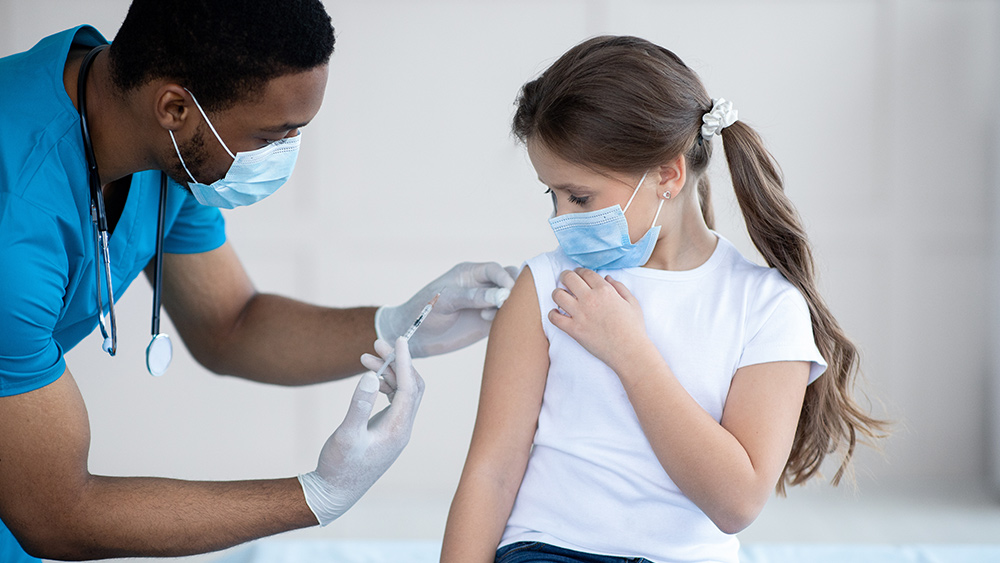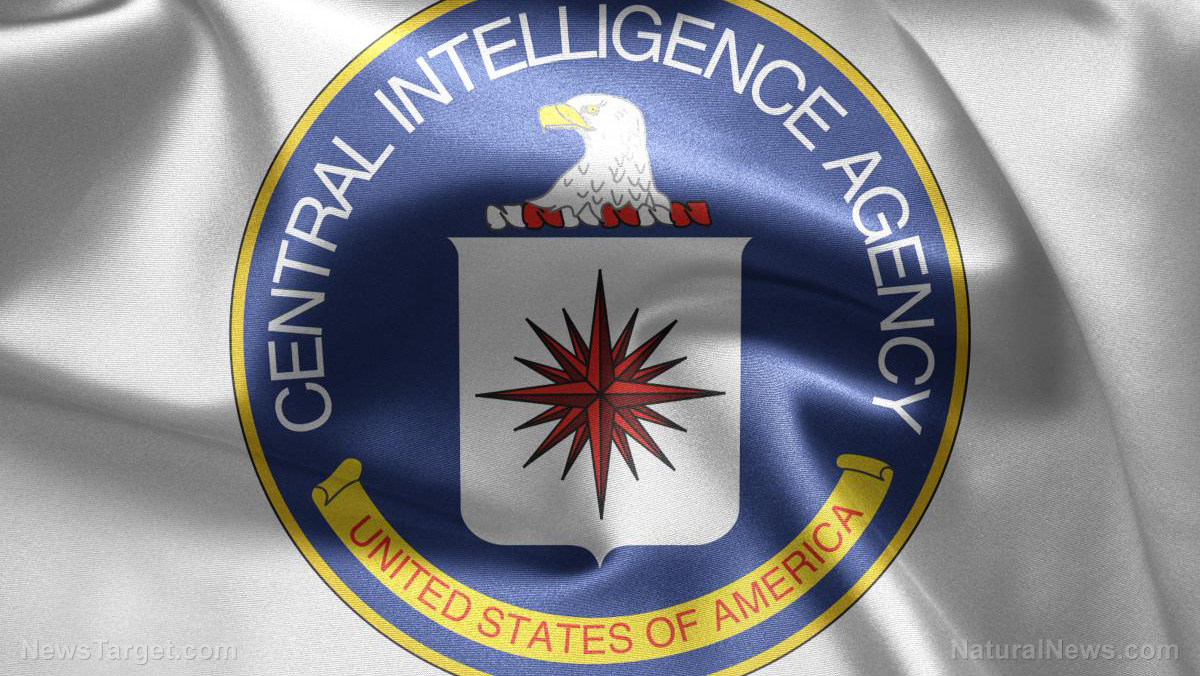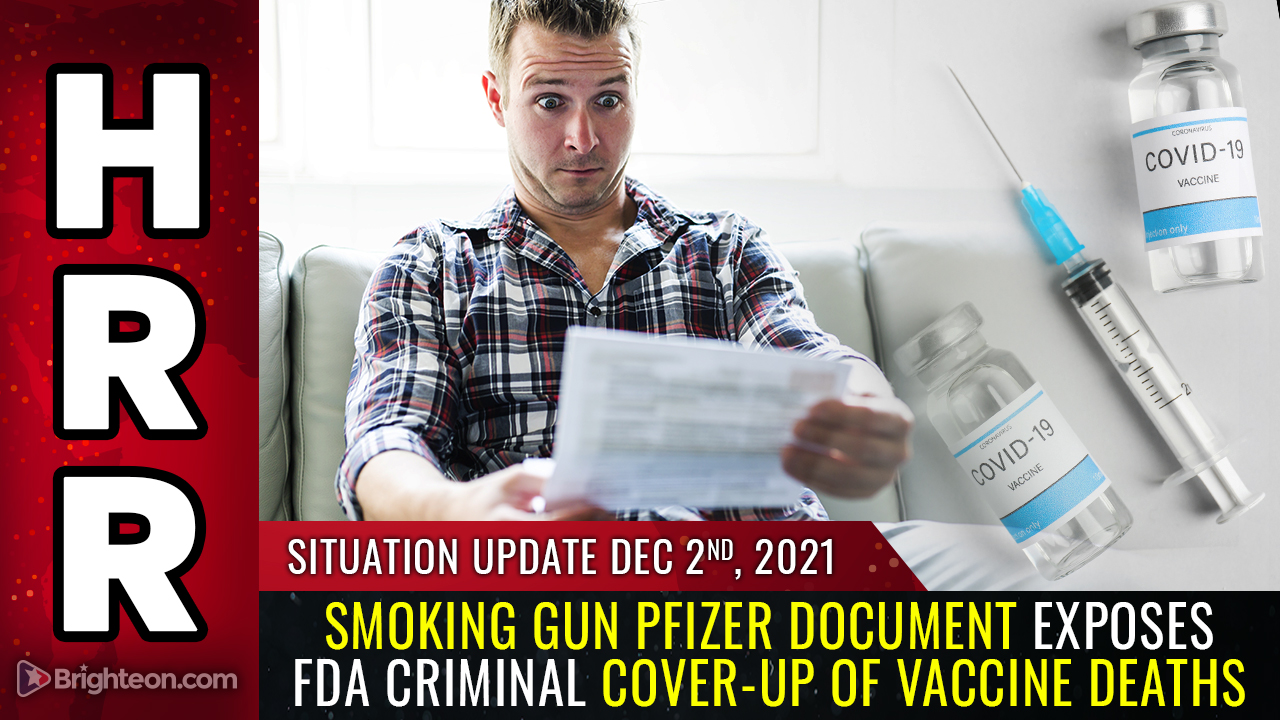CDC to hold emergency meeting following reports linking mRNA vaccines to heart inflammation
06/22/2021 / By Nolan Barton

The vaccine advisory group of the Centers for Disease Control and Prevention (CDC) planned to hold an emergency meeting on June 18 to discuss reports of heart inflammation in young individuals following a second dose of the Pfizer and Moderna coronavirus (COVID-19) vaccines.
Formally known as the Advisory Committee on Immunization Practices (ACIP), the group makes recommendations on how to use vaccines to control diseases in the U.S. The recommendations are nonbinding but the CDC often takes the recommended action. ACIP meetings are open to the public and committee documents are publicly available, ensuring transparency in decision-making.
According to the meeting agenda, the first portion of the meeting was to feature an update on COVID-19 vaccine safety, which covers myocarditis cases seen after the administration of vaccines built on messenger RNA technology.
Myocarditis is a condition that involves inflammation of the heart muscle. Symptoms can include fever and fatigue, as well as shortness of breath and a very specific type of chest pain. Patients tend to say their chest hurts more when they lean forward. The pain tends to subside when they lean back.
Americans as young as 12 develop myocarditis after COVID-19 vaccination
Dr. Tom Shimabukuro, deputy director of CDC’s Immunization Safety Office, said during a June 10 presentation to the vaccine advisory group of the Food and Drug Administration (FDA) that there have been 226 confirmed cases of myocarditis after vaccination among Americans younger than 30, and that 250 more cases are under investigation.
Shimabukuro said the CDC will continue to evaluate myocarditis cases following vaccination and assess the benefits and risks of the Pfizer and Moderna vaccines, which both use mRNA technology, ahead of the emergency meeting.
Those between ages 12 and 24 accounted for more than half of the myocarditis cases in people below 30 that have been reported to the Vaccine Adverse Event Reporting System (VAERS), despite representing just a fraction of people who have received the vaccines. (Related: Dr. Zelenko: Covid vaccine mandates for children are “coercive human experimentation, crimes against humanity.”)
“We clearly have an imbalance there,” Shimabukuro said.
According to Shimabukuro, not all of the reports submitted to VAERS will turn out to be accurate. But he added that the higher-than-expected rate of the myocarditis cases among Americans below 30 is consistent with the data from Israel.
Israel’s Ministry of Health identified over 200 cases in men between 16 and 30 years old, a vast majority of those happening at the younger end of that range. That equates to a risk of between 1 in 3,000 and 1 in 6,000 of suffering from myocarditis.
Members of FDA’s vaccine advisory group express concerns about the myocarditis data
Members of the FDA’s Vaccines and Related Biological Products Advisory Committee, to whom Shimabukuro made his presentation, expressed concerns about the myocarditis data.
“Because we’ve all discussed at fair length the concern about myocarditis and other side effects, which seem to generally be worse after the second dose, I think we need some studies on single dose and whether that might be adequate going forward,” Dr. Mark Sawyer, professor of pediatrics at the University of California, San Diego, told colleagues during the meeting.
“I think the myocarditis is something that needs to be looked at closely because we’re likely seeing the tip of the iceberg,” added Dr. Michael Kurilla, director of the Division of Clinical Innovation at the National Center for Advancing Translational Sciences, which is part of the National Institutes of Health.
Pfizer said it supports the CDC’s assessment of the heart inflammation cases, noting that “the number of reports is small given the number of doses administered.”
The FDA expanded Pfizer’s emergency use authorization to include children as young as 12, even though the pharmaceutical company’s own clinical trials of the vaccine showed disturbing effects on young people.
Pfizer gave the vaccines to one group of children between ages 12 and 15 while another group got a placebo. Among children who received just the first dose of the vaccine, rates of serious symptoms were higher across the board – including symptoms consistent with myocarditis.
COVID-19 vaccine for infants may be available in fall
The New York Times reported that COVID-19 vaccines may be available in the fall for American children as young as six months. Pfizer announced on June 8 that it was moving to test its vaccine in children between ages 5 and 12. It will begin testing the vaccine in infants in the next few weeks. (Related: Children must not be vaccinated for COVID-19.)
Compared with adults, children are much less likely to develop severe illness following infection with COVID-19. But nearly four million children in the U.S. have tested positive for the virus since the start of the pandemic, according to the American Academy of Pediatrics.
Marquette County Health Department Medical Director Dr. Robert Lorinser, also a family practice physician, said that until more concrete science is provided, the vaccines should still be administered to everyone they are authorized for.
Dr. Monica Gandhi, professor of medicine and associate chief at the University of California, San Francisco, told the Epoch Times in an email that the CDC could end up recommending only vaccinating children who have not recovered from COVID-19 because there is a link between COVID infection and myocarditis.
Other possibilities mentioned by Gandhi include giving a single dose of the Moderna or Pfizer shots to those under the age of 20, lowering the dosage amount and extending the duration between doses one and two in the young.
Follow Immunization.news for more news and information related to coronavirus vaccines.
Sources include:
Tagged Under: bad medicine, Big Pharma, chest pain, coronavirus, COVID infection, covid-19, covid-19 vaccines, heart inflammation, mRNA, mRNA vaccine, myocarditis, pandemic, shortness of breath, vaccine advisory group, VAERS
RECENT NEWS & ARTICLES
COPYRIGHT © 2017 FDA NEWS
















